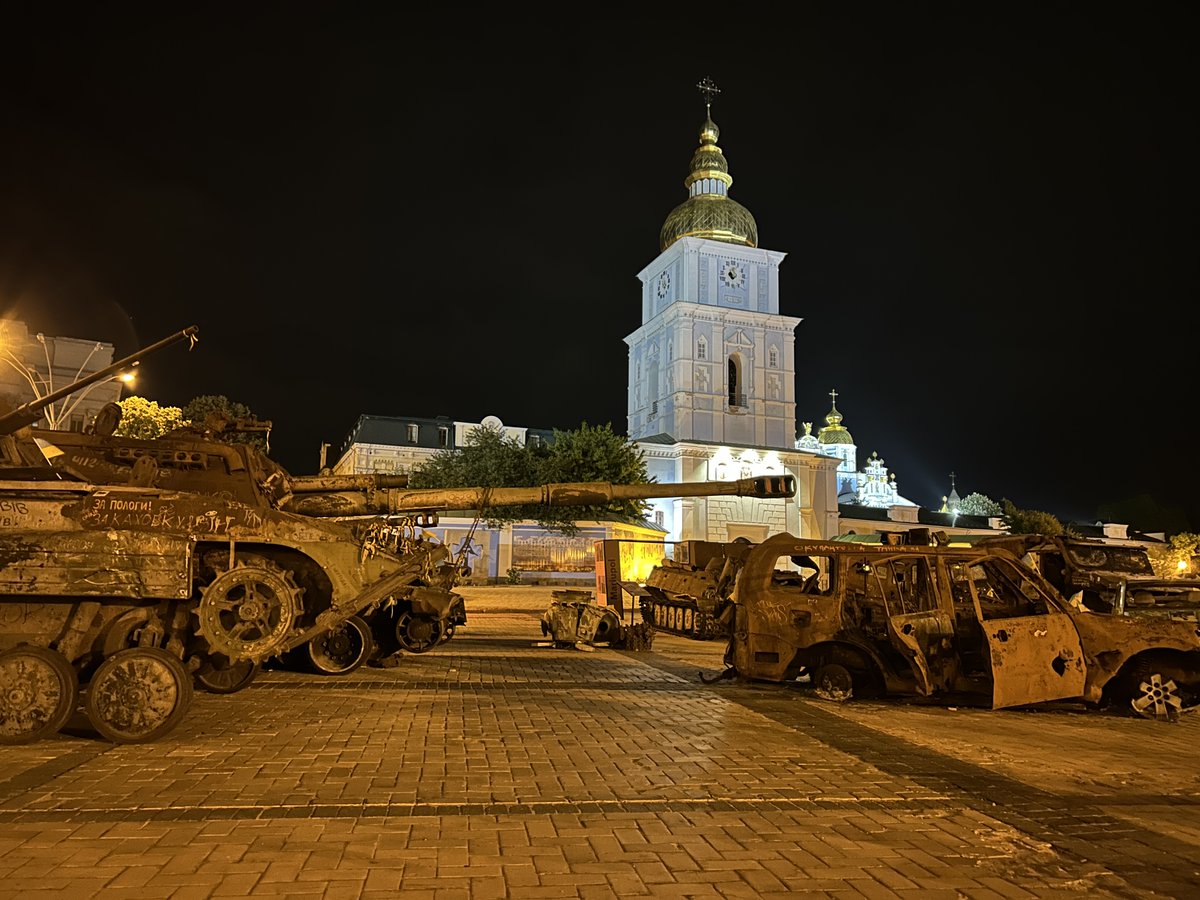Recently I returned from my second trip to Ukraine since May. I spoke to dozens of officials, soldiers, opposition figures, foreign diplomats, analysts, civil society activists—and ordinary Ukrainians who are bearing the brunt of Russia’s invasion. Here are some impressions. 

Russia has seized the initiative but is not strong enough to make a strategic breakthrough. Ukraine is faced with a conundrum: People want the fighting to end but refuse to surrender. They have no trust in Putin and want a security guarantee to deter Russia from attacking again. 

“If people thought of liberation in 2023, now they say: ‘As long as Zelensky doesn’t give away territory forever,’” an NGO leader said. War fatigue is high. Everyone knows someone who has been killed, and Russian strikes on energy infrastructure have caused rolling blackouts. 

The new mobilization law has been met with a mix of fatalism and frustration. There’s a widespread view that you can buy your way out of military service. One high-ranking officer said the system was unfair and wished for a professional army. “It’s a war of the poor,” he said. 

As one analyst put it, people still trust Zelensky as the commander in chief but not as a politician. That tracked with my observations. Given the mortal Russian threat and martial law, nobody is demanding elections or ready to take to the streets.
But the opposition is critical of the power amassed by the presidential administration and restrictions on the news media; they want a government of national unity. Zelensky’s team says that would lead to chaos, just look at how that worked out for Israel. 

Some Ukrainians see a ceasefire as an opportunity to hold elections and reboot the government. Others dread the tensions that will come to the surface when political rivals trade recriminations and look to settle old scores frozen by the war.
Everyone is waiting for the first F-16s to push back the Russian warplanes dropping deadly glide bombs. There can never be enough air defense. And the Ukrainian military still wants the Americans to grant permission to strike more targets inside Russia. 

Ukrainians feel their fate very much hinges on the US presidential election. Despite all the reservations about Trump, people in Ukraine remember that he provided the first US weapons. Biden is held in esteem, but he is widely seen as being too cautious and slow.
PS: The US presidential race has taken some sharp turns since my departure. After Trump picked JD Vance as running mate, one interlocutor in Kyiv wrote that people were either “depressed” or “concerned.” Now they’re trying to figure out what a Harris presidency might bring.
Some Ukrainians believe there can be no peace until the US reaches an agreement with Russia. There’s the feeling Trump could shake things up, even impose a peace deal that would absolve Ukrainian politicians of responsibility and get some buy-in from America. 

Zelensky’s team defends his “peace formula” as a way for Ukraine to take back agency and declare its demands. But critics say the Swiss summit didn’t get Ukraine any closer to peace—and doubt a second conference can take place before the US election. president.gov.ua/storage/j-file…
On my last day in Kyiv, I went to Independence Square—the Maidan—where a makeshift memorial to fallen Ukrainian (and foreign) fighters has sprung up. There are thousands of flags, many with names and dates written on them, like in a cemetery. 

I left Ukraine in a somber mood. But my companions on the train lifted my spirits: Yelyzaveta, Olga and Ganna, 3 young Ukrainian women excelling in business, IT and sports. They are Ukraine’s future. END 

• • •
Missing some Tweet in this thread? You can try to
force a refresh











